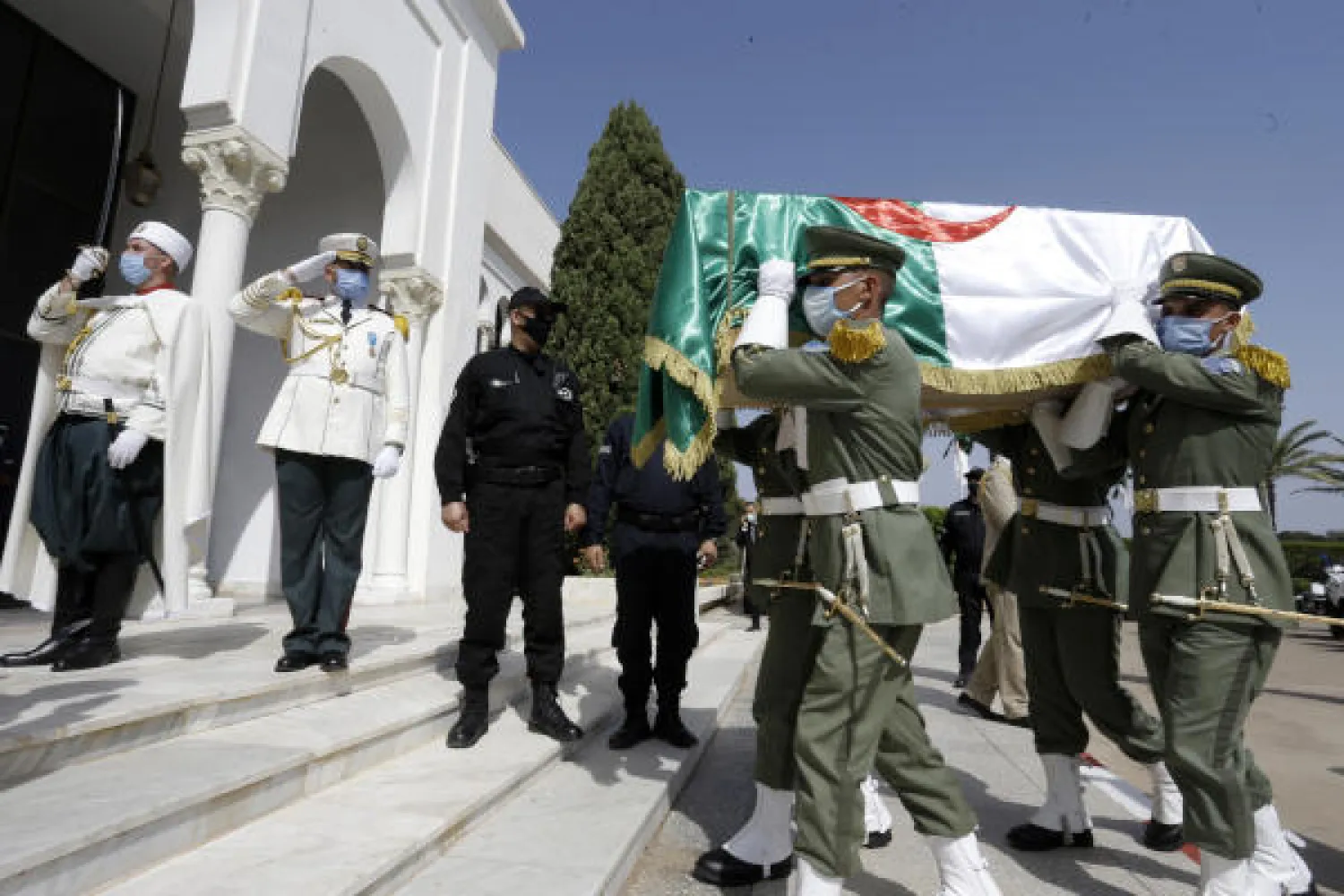Algeria on Friday received the skulls of 24 resistance fighters decapitated during France's colonial occupation of the North African country, and which had been stored for decades in a Paris museum.
The return of the remains comes amid a global reexamination of the legacy of colonialism since the May killing of 46-year-old African American George Floyd by a white police officer sparked mass protests.
UN human rights chief Michelle Bachelet has urged countries to make amends for "centuries of violence and discrimination".
The skulls, once viewed as war trophies by French colonial officers, were flown into Algiers airport on a Hercules C-130 transport plane, escorted on arrival by Algerian fighter jets.
To a 21-gun salute, President Abdelmadjid Tebboune and a military guard of honor gave them an official welcome, an AFP correspondent said.
The remains, in coffins draped with the Algerian flag, were carried shoulder high out of the aircraft by soldiers as a military band played a funeral march.
Tebboune bowed in front of each coffin and a Muslim cleric recited a prayer for the dead.
Army chief of staff Said Chengriha delivered a speech denouncing colonialism as "despicable".
"The heroes of the popular revolt have returned to the land where they sacrificed their lives," he said.
One Algerian tweeted: "The city is incredibly silent as the sirens of boats echo across the port of Algiers in a great moment of emotion."
The coffins will be taken to the Palace of Culture in Algiers where they will be on display Saturday for the public to pay their respects.
On Sunday, the 58th anniversary of Algeria's independence, the skulls will finally be laid to rest in the martyrs' section of the capital's El Alia cemetery, local media reported.
'Heroes'
France's 132 years of colonial rule in Algeria, and the brutal eight-year war that ended it, have left a legacy of often prickly relations between the two countries.
But the return of the remains has been seen as indicating a thaw in ties.
The French presidency, in a statement to AFP, said the return of the remains was a gesture of "friendship" and part of efforts to "reconcile the memories of the French and Algerian people".
Announcing the repatriations on Thursday, Tebboune said the decapitated fighters "had been deprived of their natural and human right to be buried for more than 170 years".
He called them "heroes who confronted the brutal French occupation between 1838 and 1865".
"The savage enemy decapitated them in reprisals before transferring their skulls overseas so that their graves would not become a symbol of the resistance," Tebboune added.
Among the remains were those of revolt leader Sheikh Bouzian, who was captured in 1849 by the French, shot and decapitated, and the skull of resistance leader Mohammed Lamjad ben Abdelmalek, also known as "Cherif Boubaghla" (the man with the mule).
Historian Malika Rahal described them as "martyrs... returning home".
"The body parts of those who fought the conquest of their country are returning home after a very long stay in cardboard boxes at the Musee de l'Homme in Paris," she tweeted.
'Cardboard boxes'
Emmanuel Macron, the first French president to be born after the 1954-62 independence war in which 1.5 million Algerians died, made his first official visit to the country in December 2017, saying he came as a "friend".
At the time, he told news website Tout sur l'Algerie that he was "ready" to see his country hand back the skulls.
Algeria had officially asked for their return in 2018, as well as requesting the handover of colonial archives.
Algerian and French academics have long campaigned for the return of the skulls.
Algerian historian Ali-Farid Belkadi was the first to call for their return in 2011 after undertaking research work at the Musee de l'Homme.
At the time, he said the skulls were kept in "vulgar cardboard boxes that resemble shoe boxes".
In December 2019, Macron said that "colonialism was a grave mistake" and called for turning the page on the past.
During his presidential election campaign, he had created a storm by calling France's colonization of Algeria a "crime against humanity".









